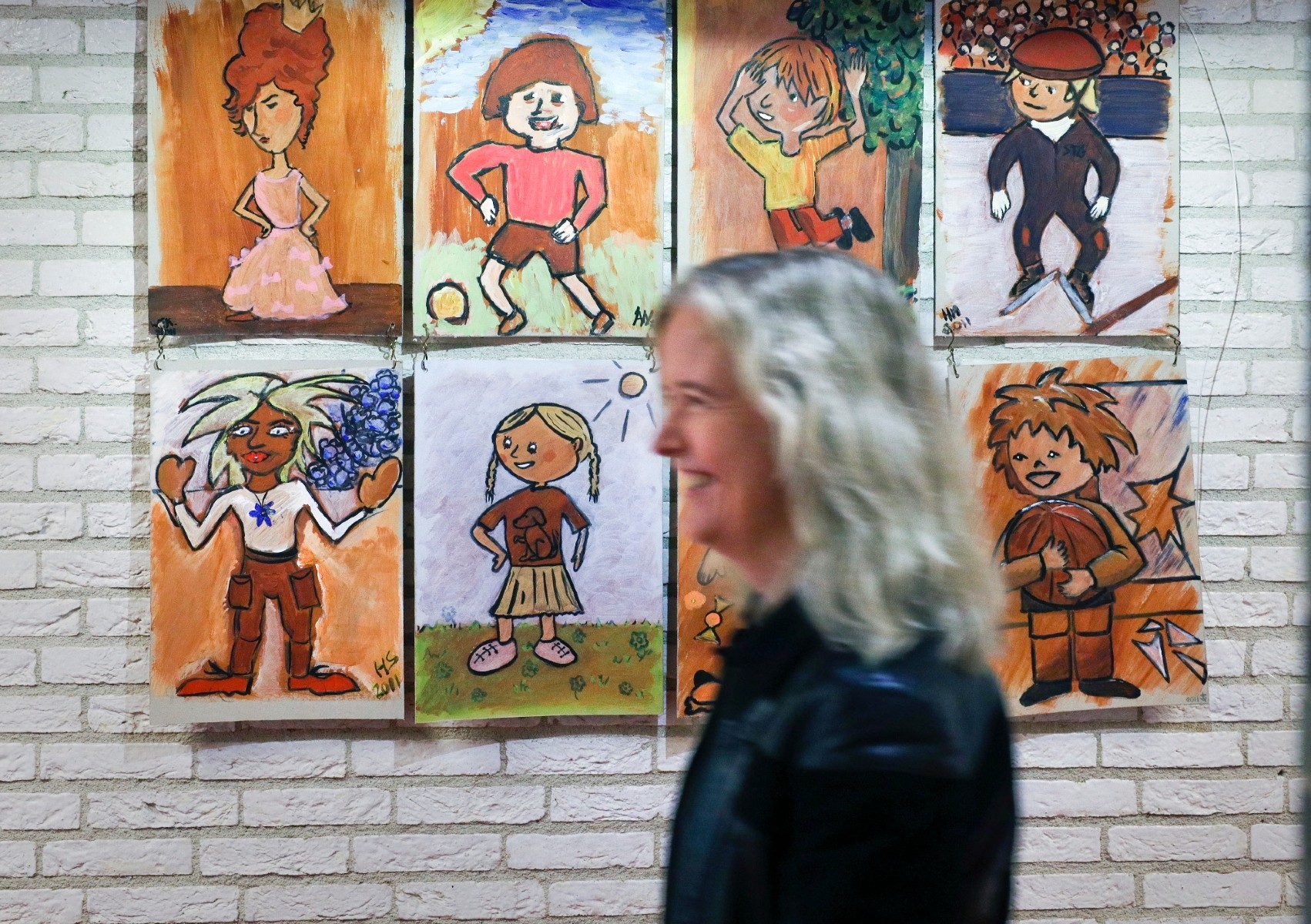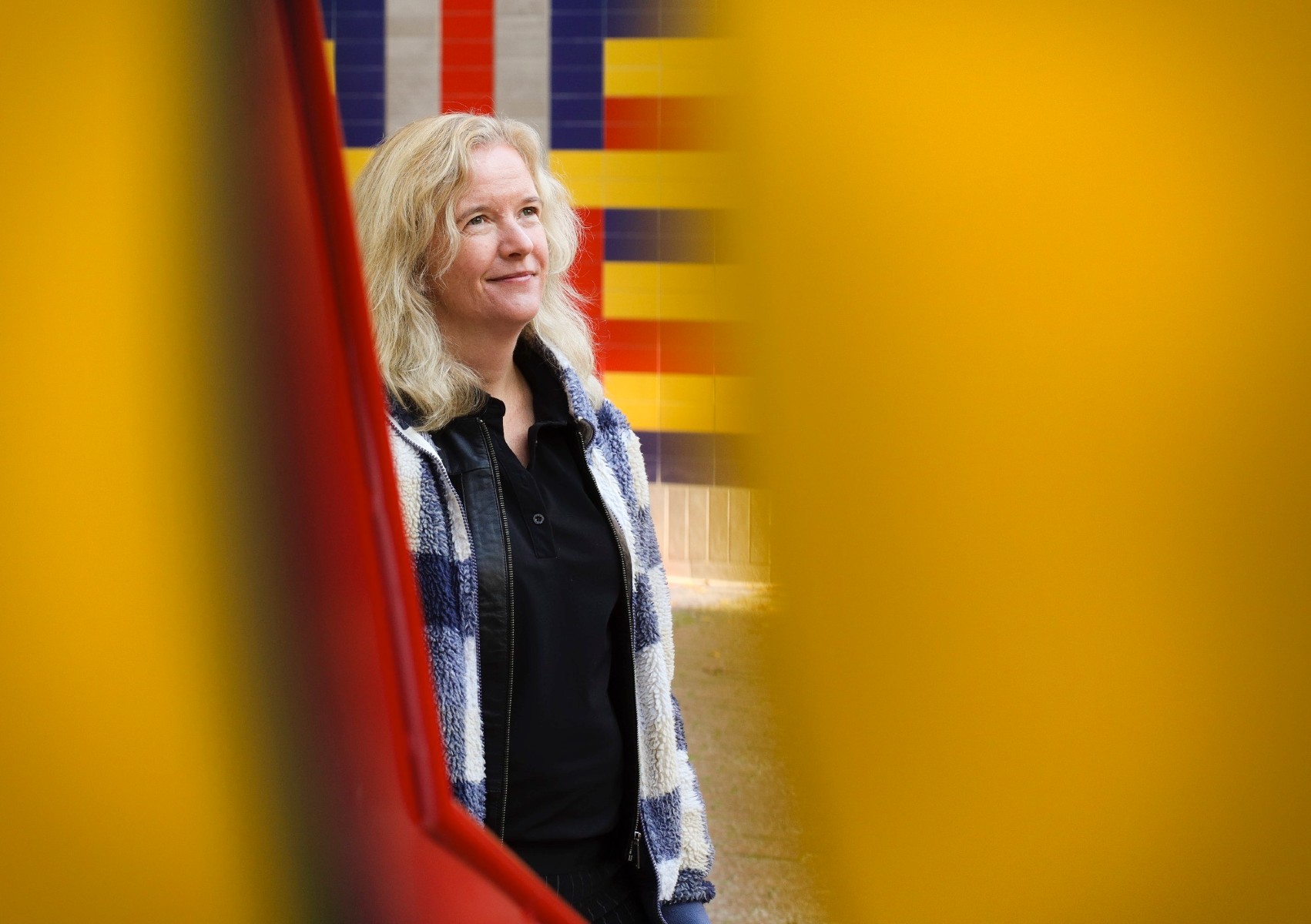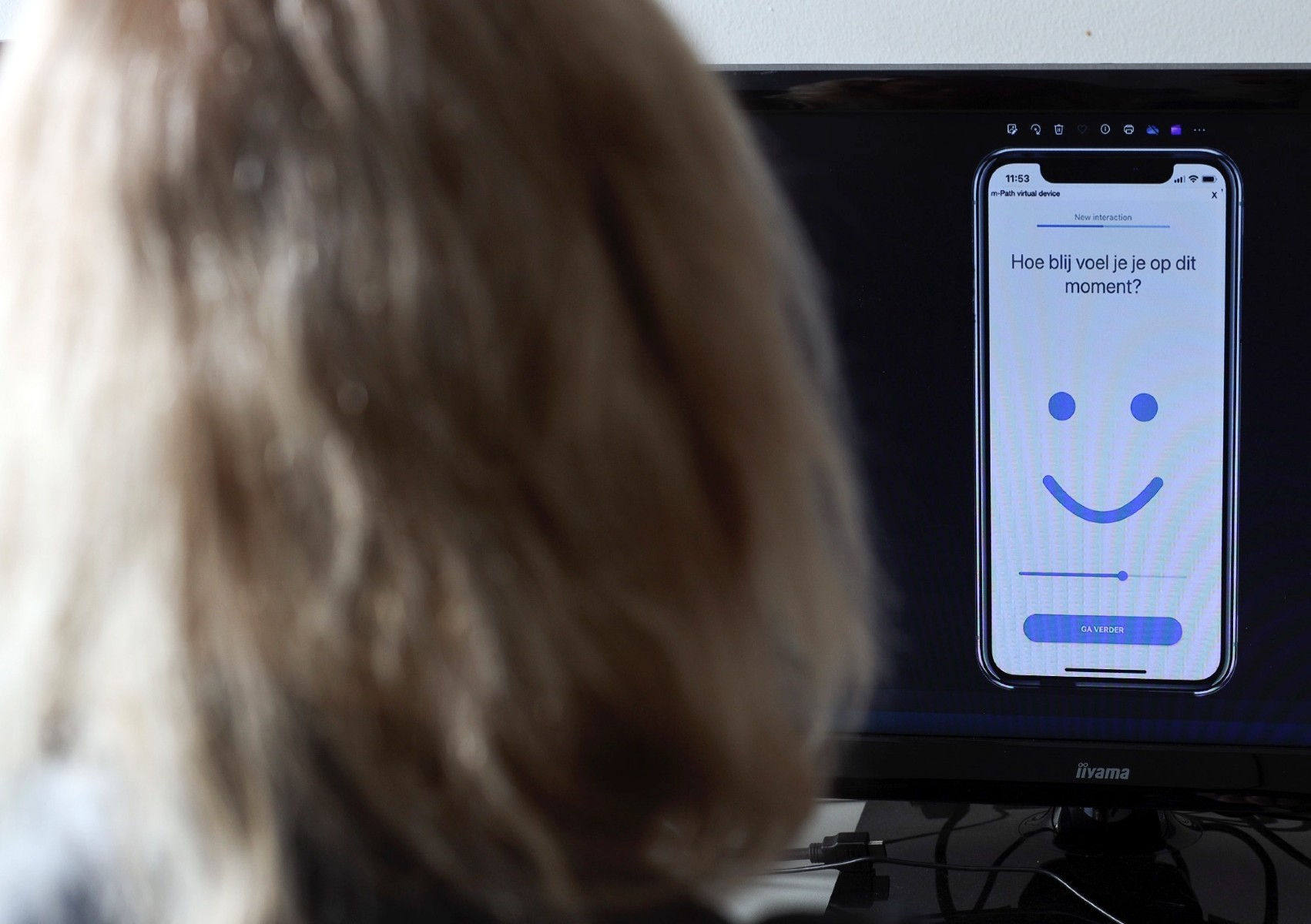Do parents have any influence on whether their children wear 'pink' or 'grey' glasses?

How does a positive outlook actually develop? How important is upbringing in this regard? And what kind of role does optimism actually play in the daily lives of parents and children? Charlotte Vrijen is trying to find an answer to these questions. She is researching the origin and development of optimism in children as they grow up.
Text: Froukje Duursema, Corporate Communication / Photos: Henk Veenstra
Does the apple fall far from the tree?
‘I have already been researching this topic for two years now,’ says Vrijen, researcher and lecturer in the Department of Developmental Psychology at the Faculty of Behavioural and Social Sciences. ‘In my research, I particularly look at parents' role in developing optimism and whether a difference can already be seen in the attitudes to life of very young children. I also compare how optimistic and less optimistic parents interact with their children.’ According to Vrijen, it is highly plausible that parents do contribute to their children wearing pink glasses, but how exactly they do so is still unclear. Do they create more positive situations and experiences for their children, for example? Positive-minded people take more active steps to let positive things happen,’ according to Vrijen. ‘That is simply a quality of optimists. If these optimistic parents do that, then the child's environment could be more positive as a result. And if you often are in a positive environment, you may become more hopeful too. That is one mechanism I am researching.’

Optimism is essential for children
Vrijen indicates that previous research shows that children view life more optimistically than adults. ‘Actually, this plays an important role as well because children still have a lot to discover. Therefore, it is useful if they are not that withdrawn or afraid to take action, as they will ultimately need to explore the world. The idea is that children are rather optimistic and become more realistic over time due to their experiences.’
What exactly is optimism?
There are various definitions of optimism. In addition to this, the notion of optimism is very subjective — everyone experiences it differently. ‘I particularly focus on dispositional optimism,’ says Vrijen. ‘In short, this means seeing your own future as positive and assuming that more positive than negative things are going to happen in your future.’ This is a definition many people will probably recognize.

Being invulnerable
‘Another form of optimism which is also discussed in my research indirectly is "optimism bias". This is more about the idea that people think that no bad things can happen to them.’ According to Vrijen, a strong optimism bias can be risky because it gives people the idea that they are special and that negative consequences do not apply to them. ‘US studies have already found that people with an optimism bias are more likely to think that the risks of smoking and drinking apply less to them.'
Methods
‘One of the methods I use in my research is analysing the emotional dynamics between parents and their young children of around 2.5 years old. We have videos of them building a tower together and then having to tidy up the blocks again. I look at whether positive-minded and less positive parents differ in the emotions they show to their children during the task and also whether the child’s emotions are already different. This has to do with emotion regulation: do optimistic parents regulate their children’s emotions differently than less optimistic parents? I examine whether differences between parents who assume the best or the worst are already reflected in the emotional dynamics between them and their young children.’
Vrijen also looks at parents and slightly older children. ‘Here I assess children between 10 and 12 years and their parents. I assess them three times a day for 30 days via an app on their smartphone called m-Path. In this app, they answer all kinds of questions about how positive they are about their future, but also, for example, about the next hour. We also ask them how they feel, and children and parents also answer questions about each other. We not only ask children how they deal with their own emotions, but we also ask them how their parents dealt with them.’ This study has just started and is currently taking place in Groningen, Friesland, and Drenthe. ‘So far, I have 15 families, but I hope to involve 100 in total.’

The advantages of optimism
‘Research shows that optimism can be associated with better mental health and even somewhat better physical health. With depression, it often happens that people are inclined to avoid things. If you do that, you deprive yourself of the opportunity for positive experiences and at some point you may end up in a downward spiral. When you have a rosy outlook, you are more likely to embark on things you have not done before or find scary, which actually gives you the opportunity to have positive experiences.’
So clearly, pink glasses can be helpful in creating more positive experiences. Whether you can develop optimism remains to be seen. ‘So far, twin studies show that around 25-30% of optimism is hereditary. Studies do exist on fostering a positive outlook. It seems that you can contribute to this, but there is very little information on whether this effect persists in the long term. Ultimately, of course, you would like to know what the long-term effects are. I hope that by gaining a better understanding of the parental traits and behaviours that contribute to optimism in children, it can serve as a starting point in the future to encourage positive thinking within families.’
Charlotte Vrijen is a lecturer and researcher in the Developmental Psychology department at the University of Groningen. In 2022, she received a Veni grant from the Dutch Research Council (NWO) for her research into the origin and development of optimism in children as they grow. Parents and children between 10 and 12 years old who would like to participate in Vrijen’s recently launched research can find more information here .
More information
More news
-
08 December 2025
Citizen participation essential for a sustainable energy future
-
23 October 2025
Nine UG researchers awarded Vidi grant
